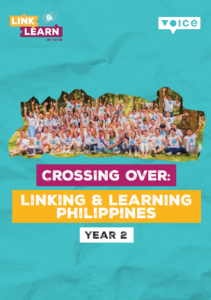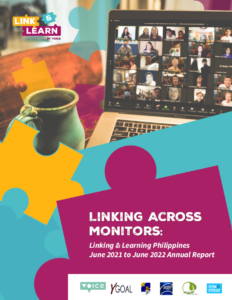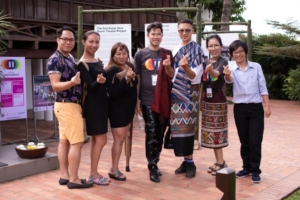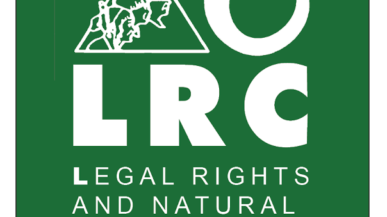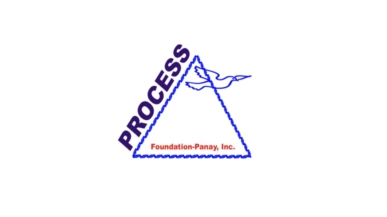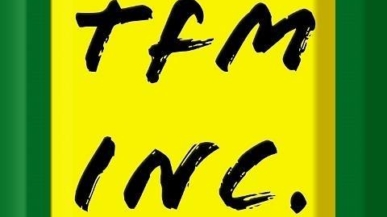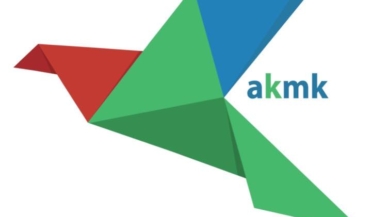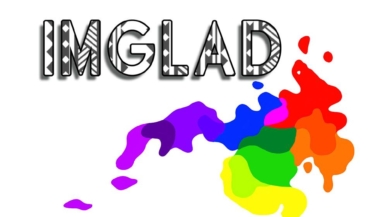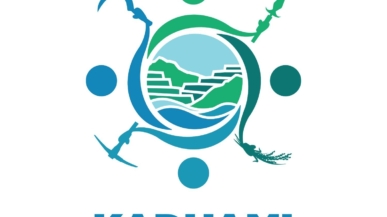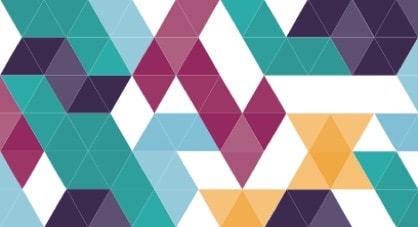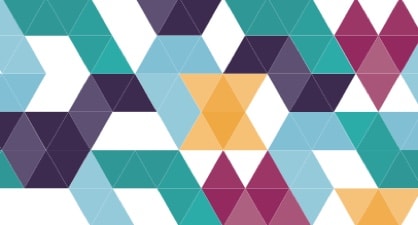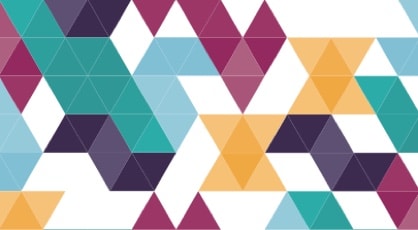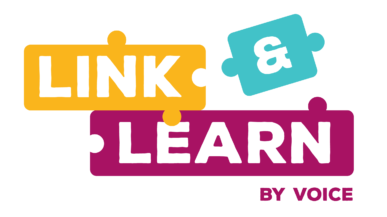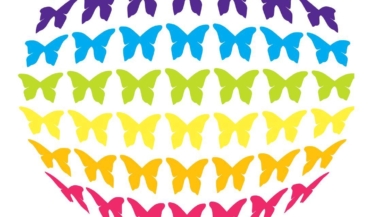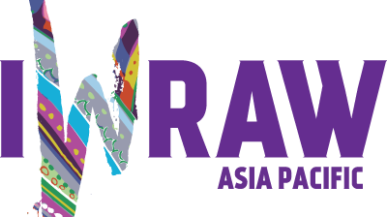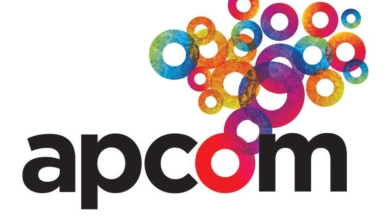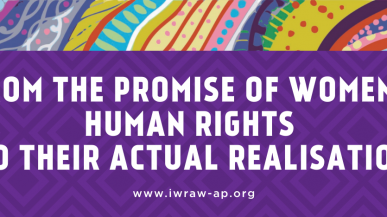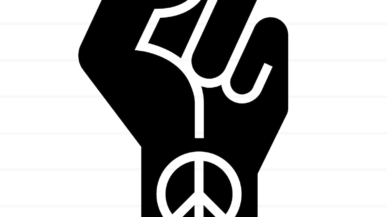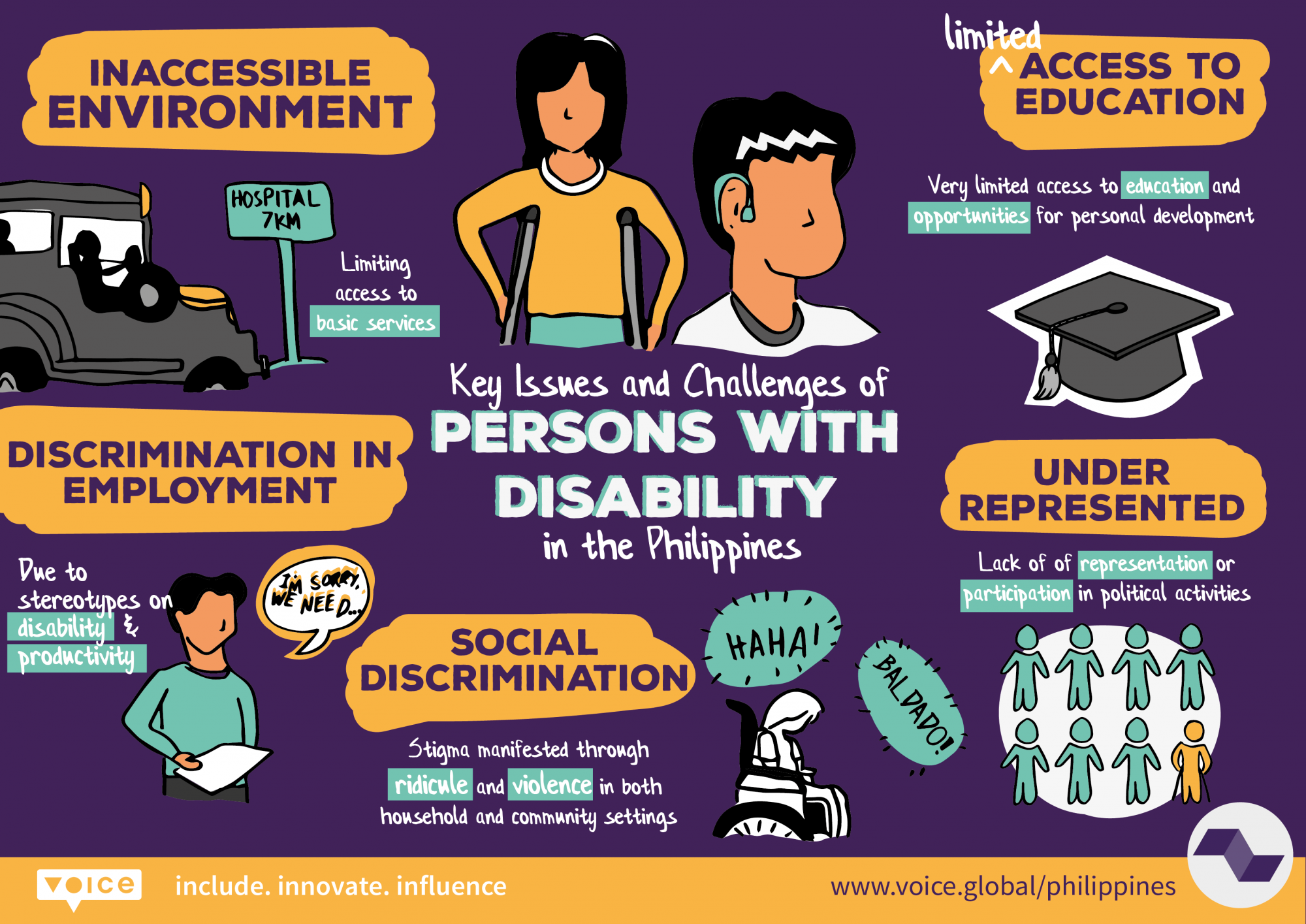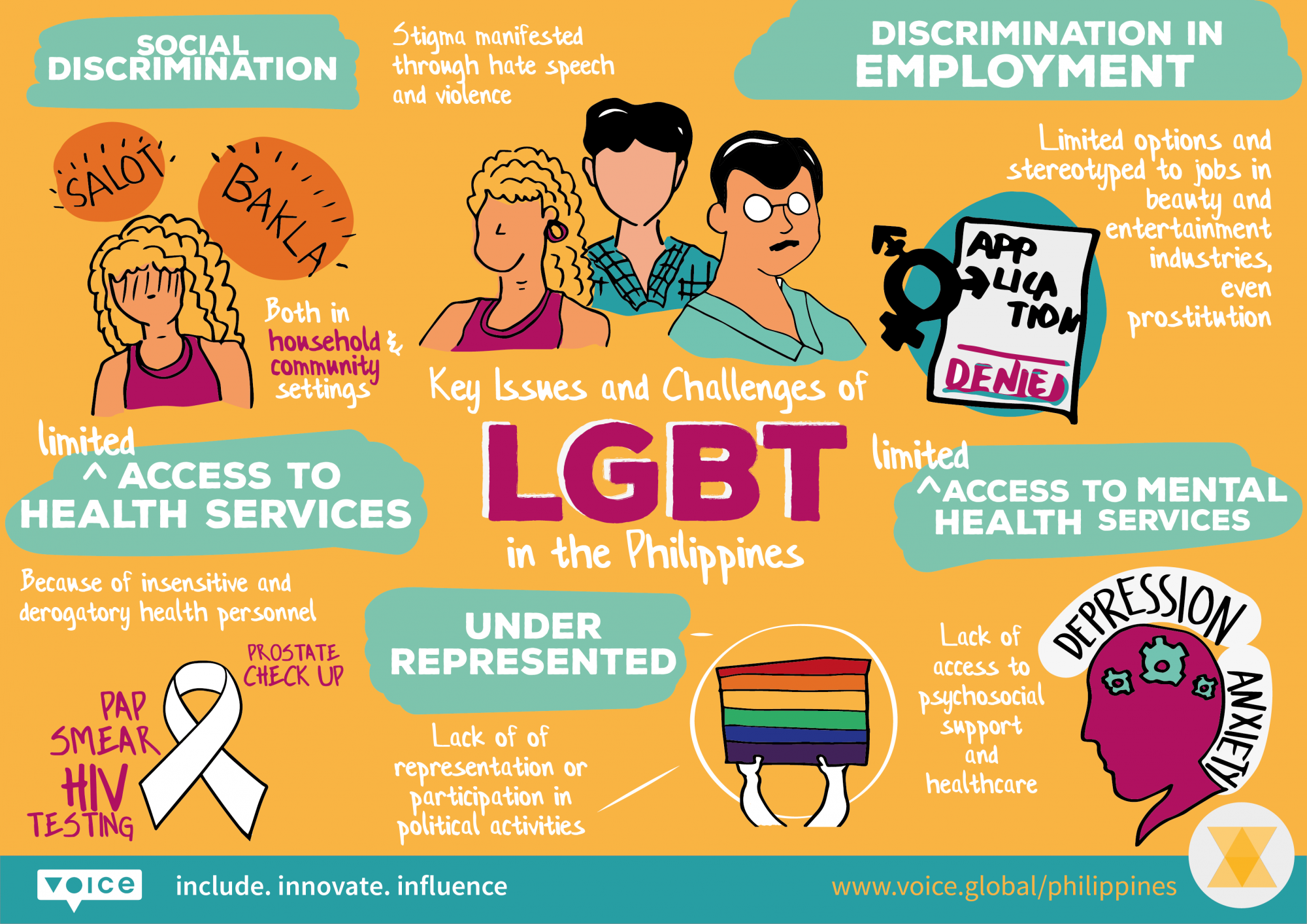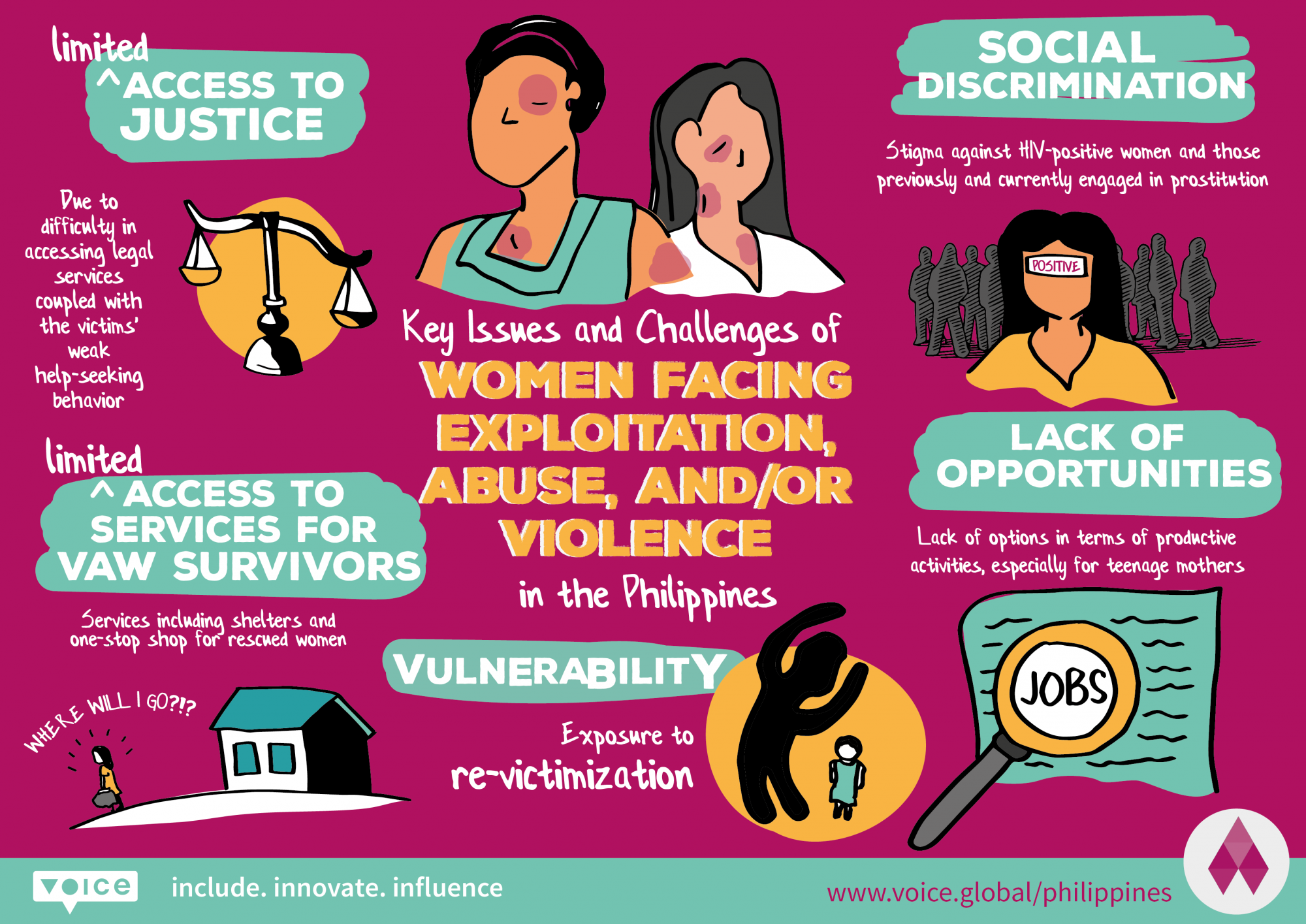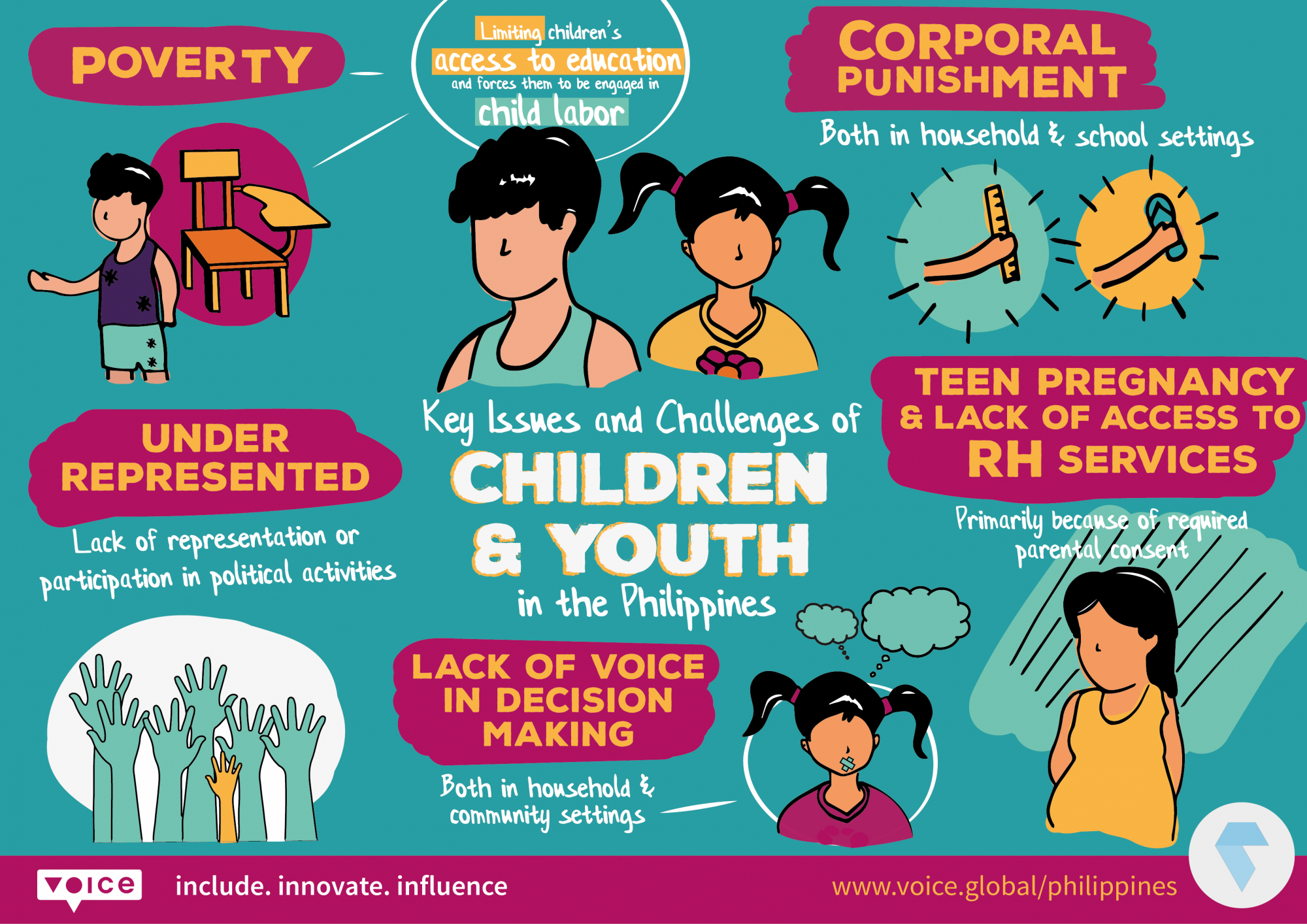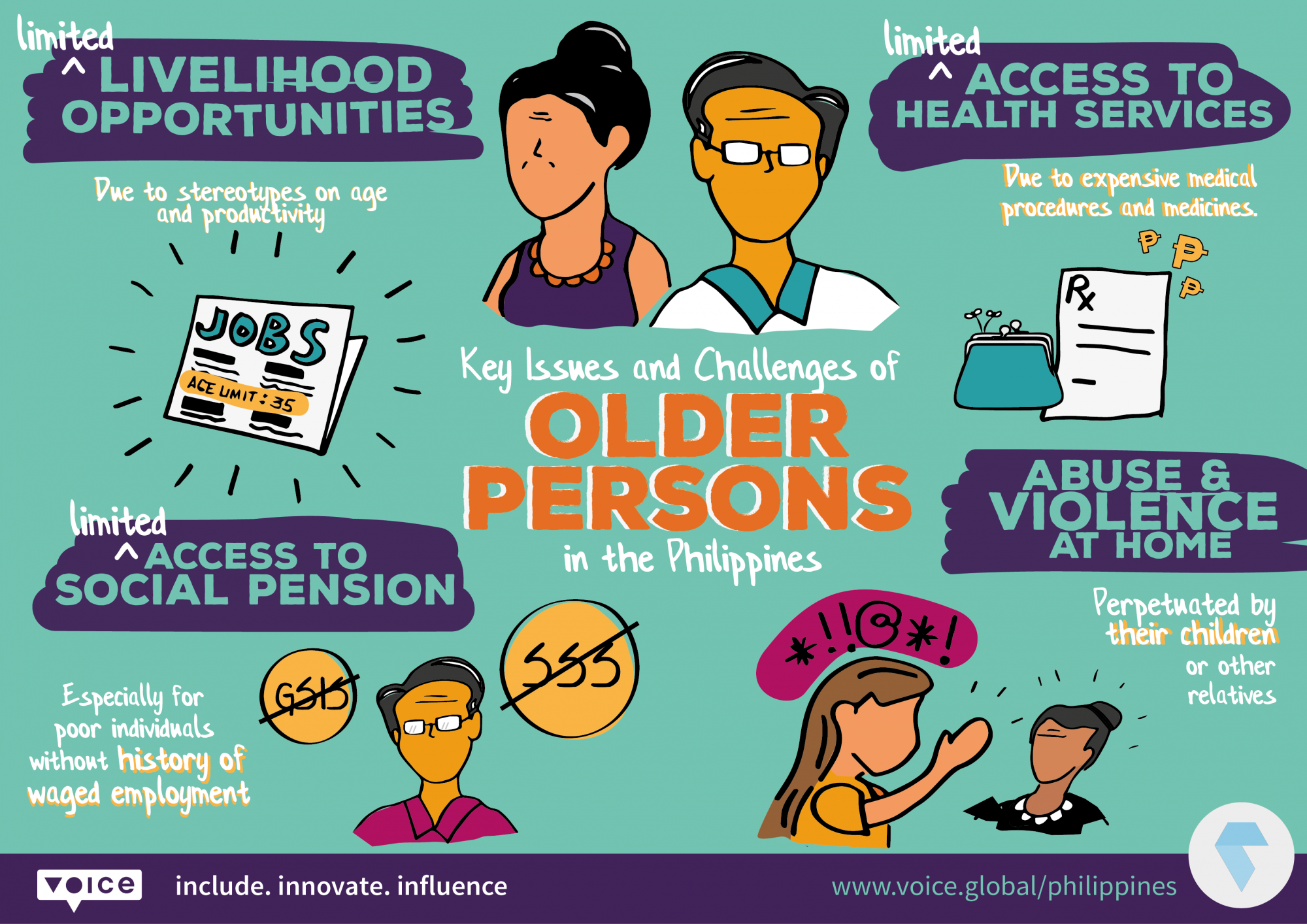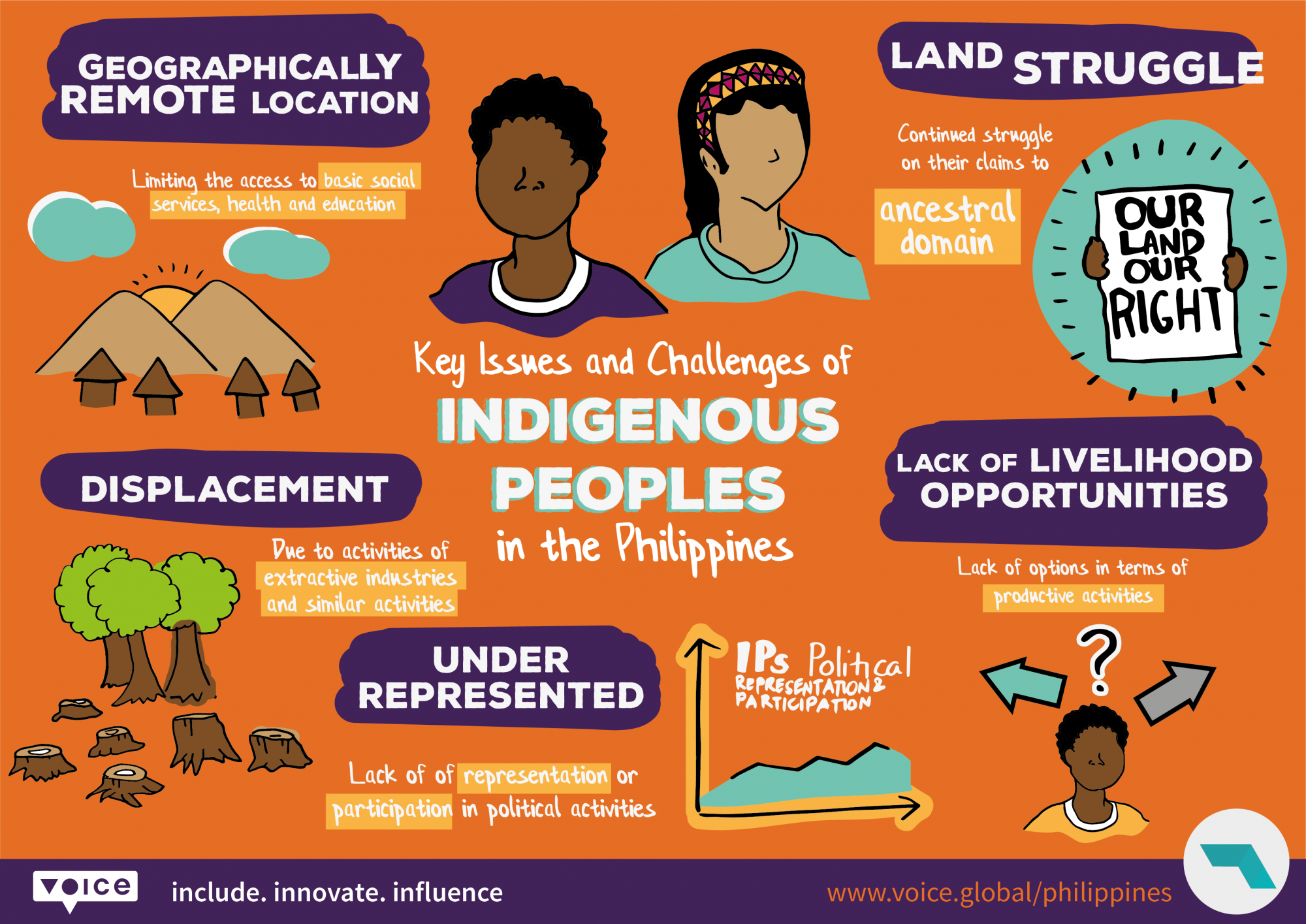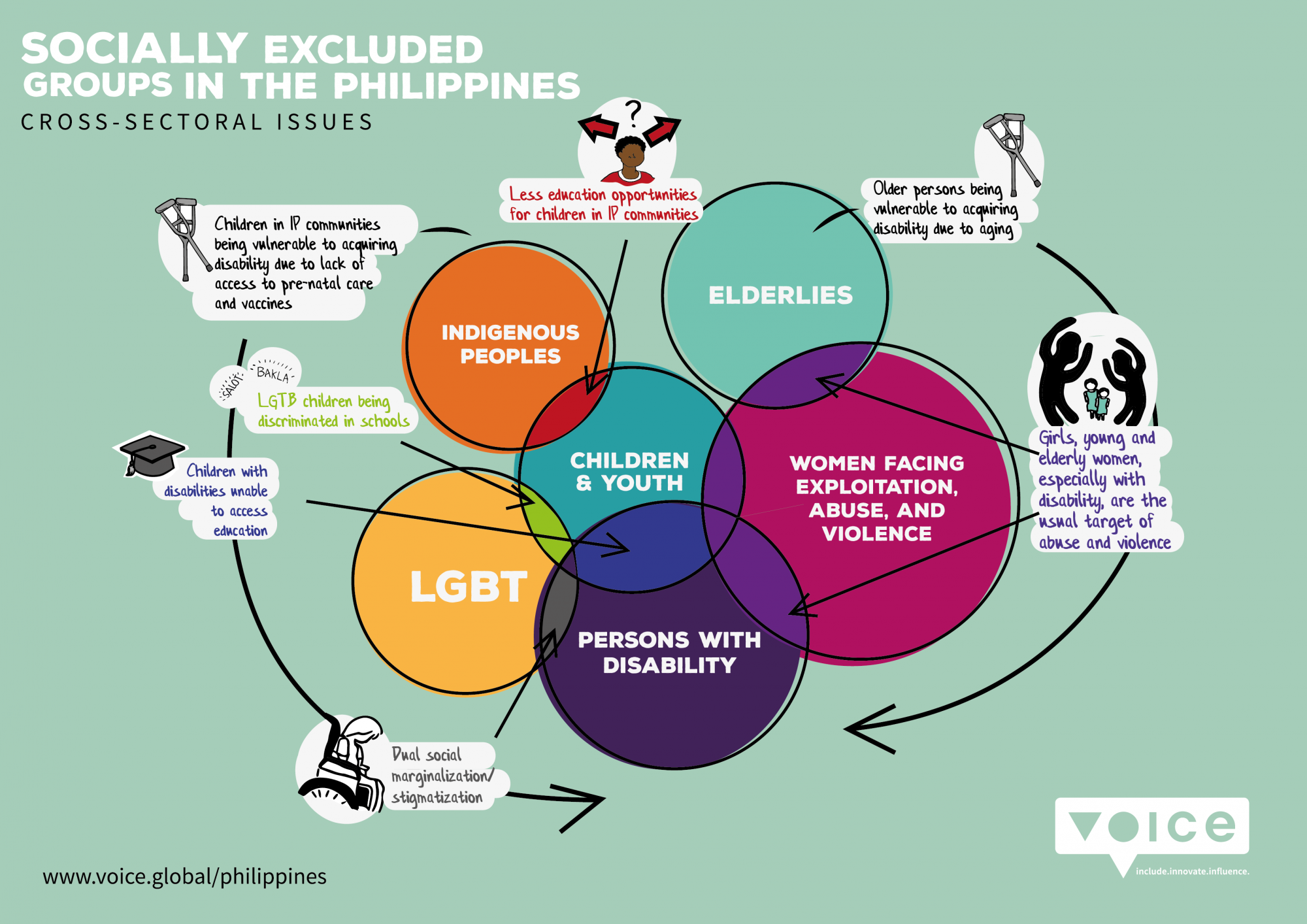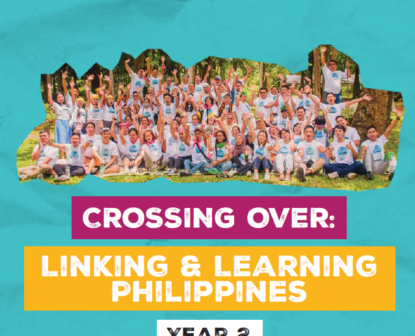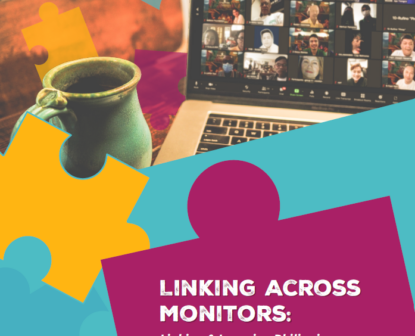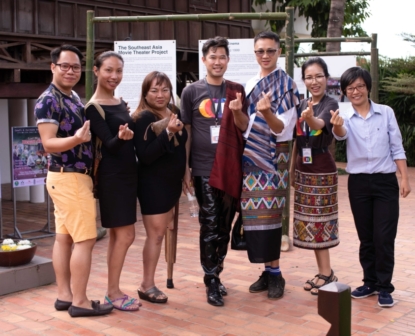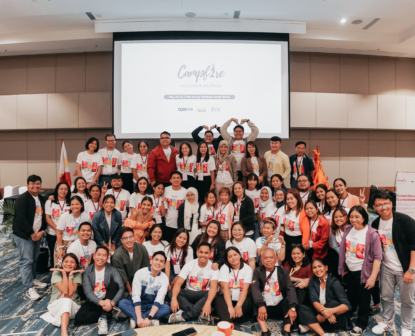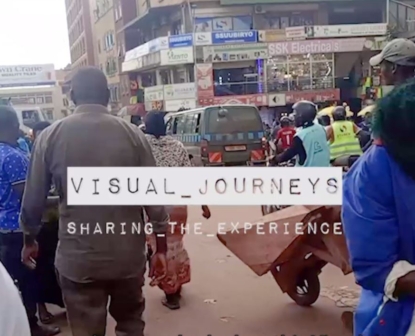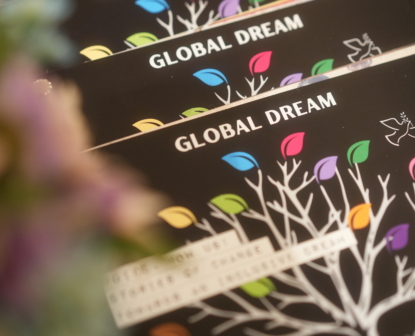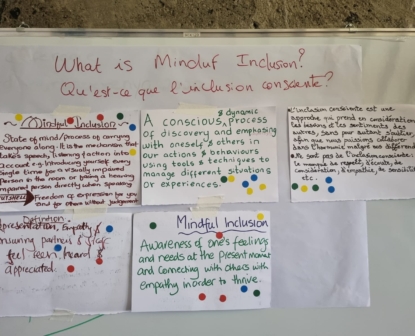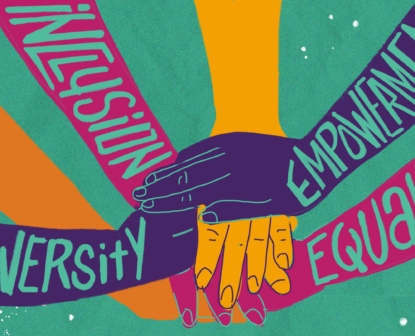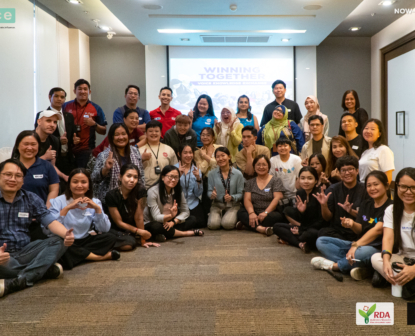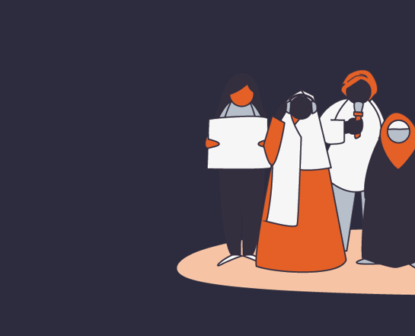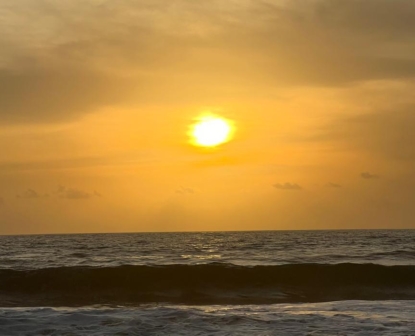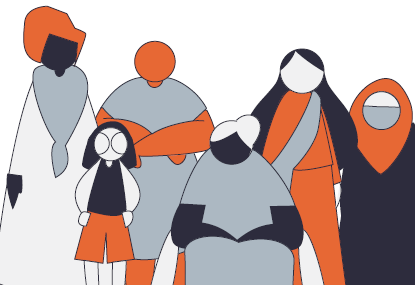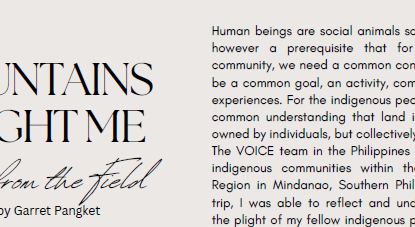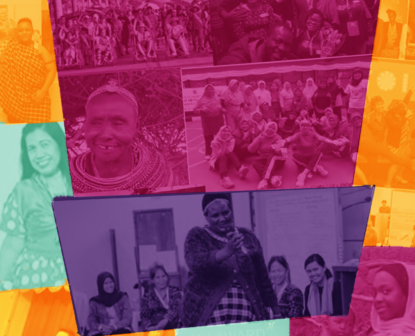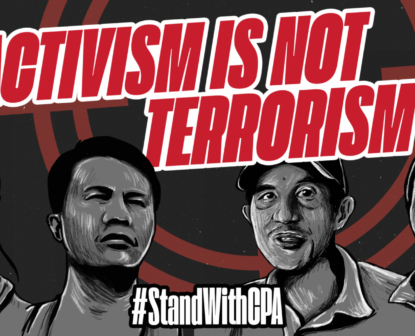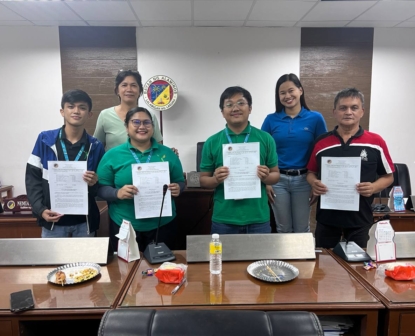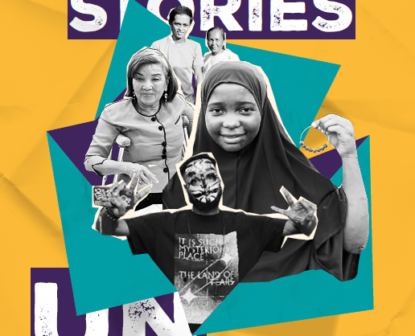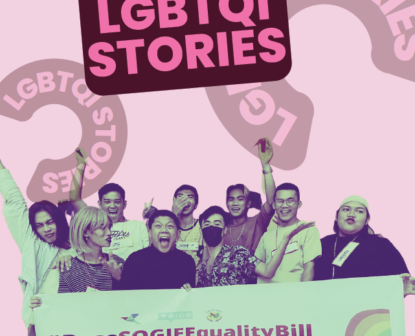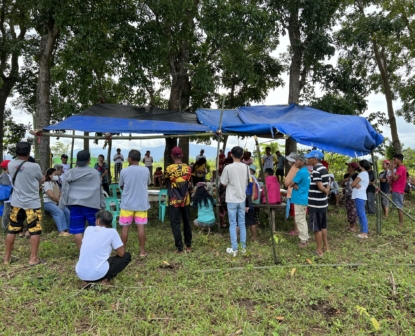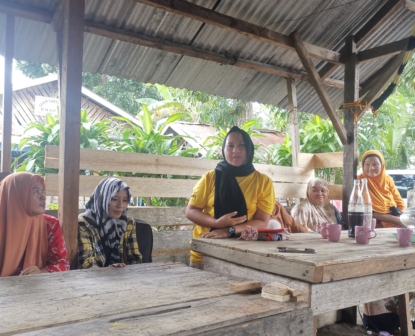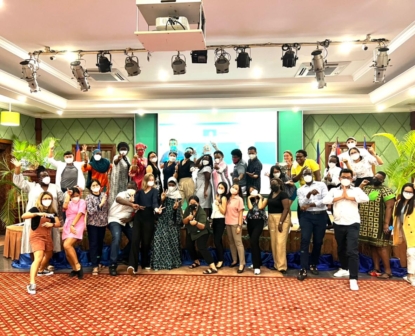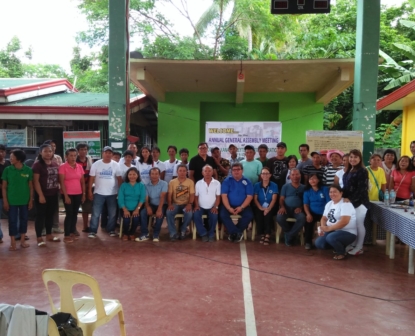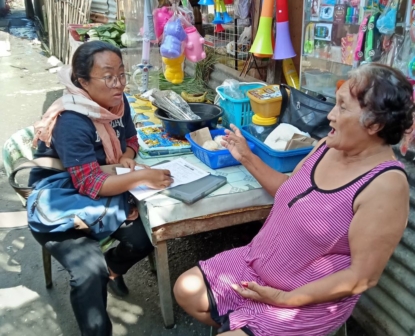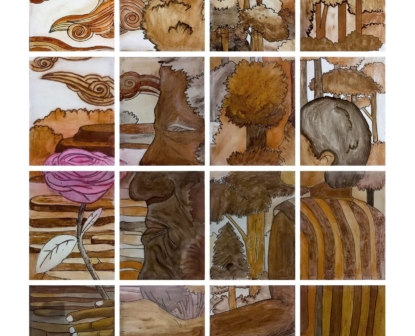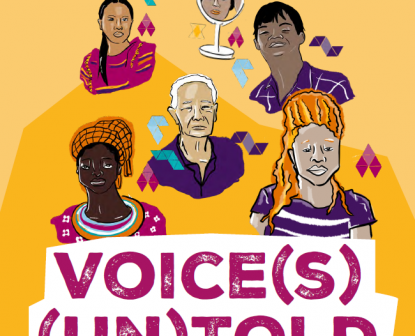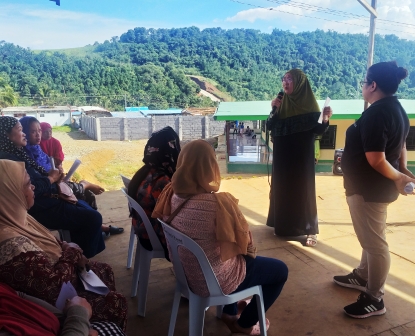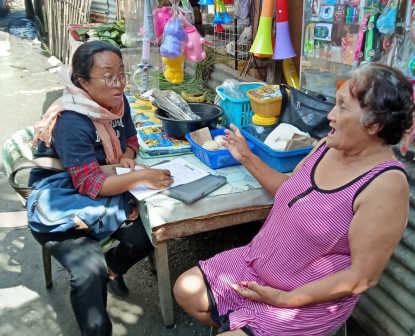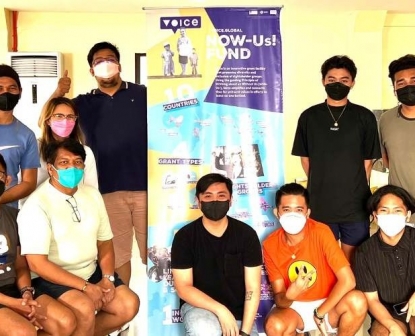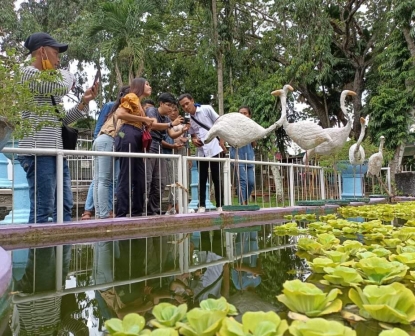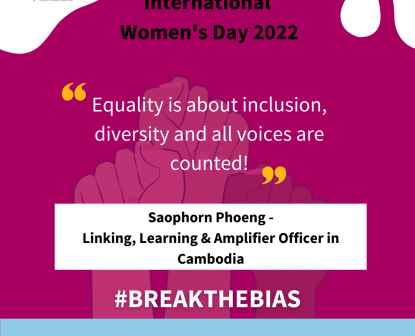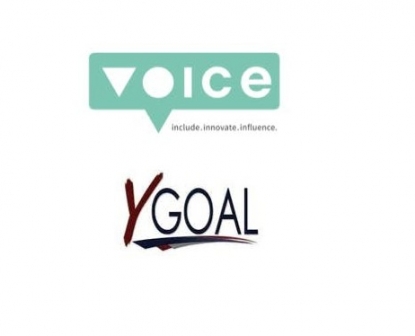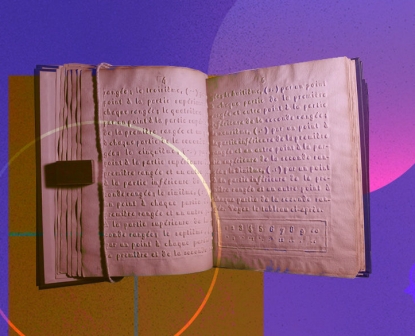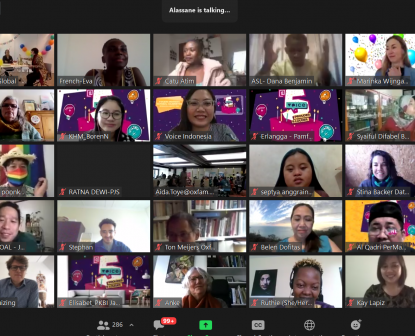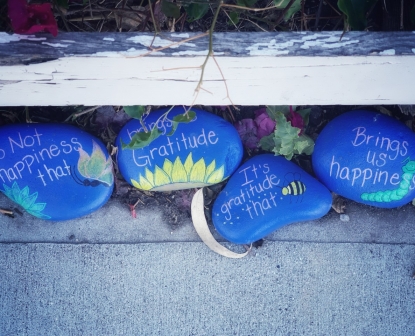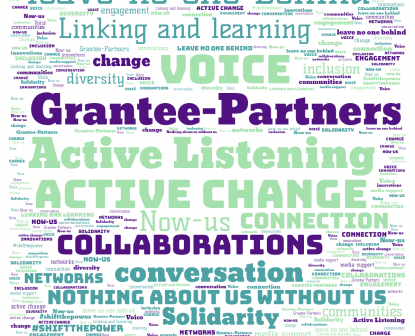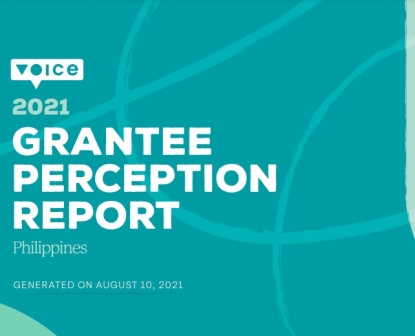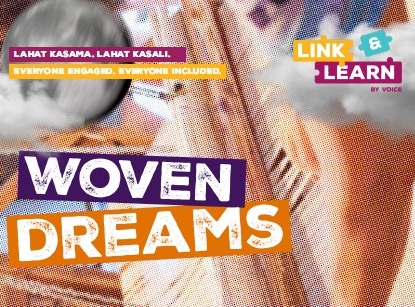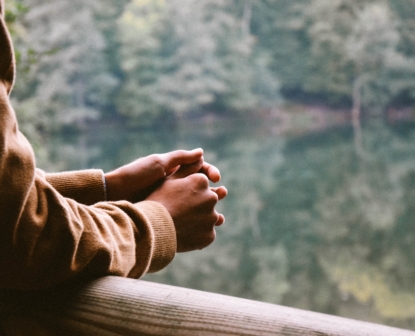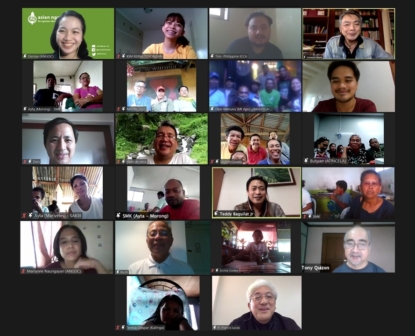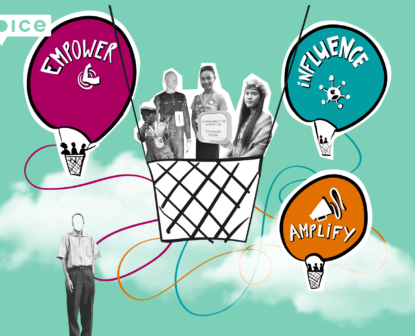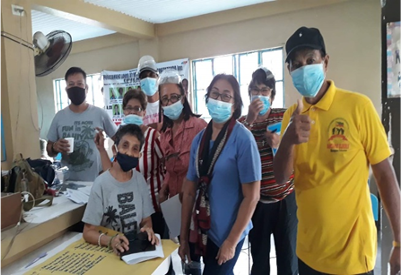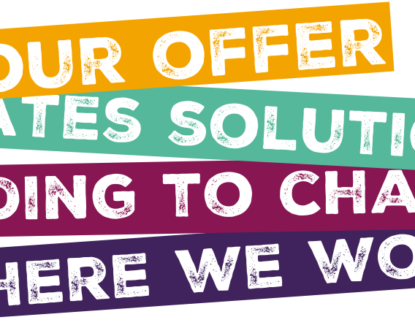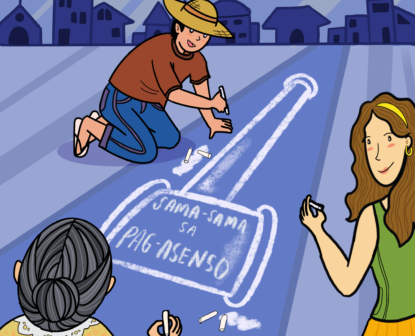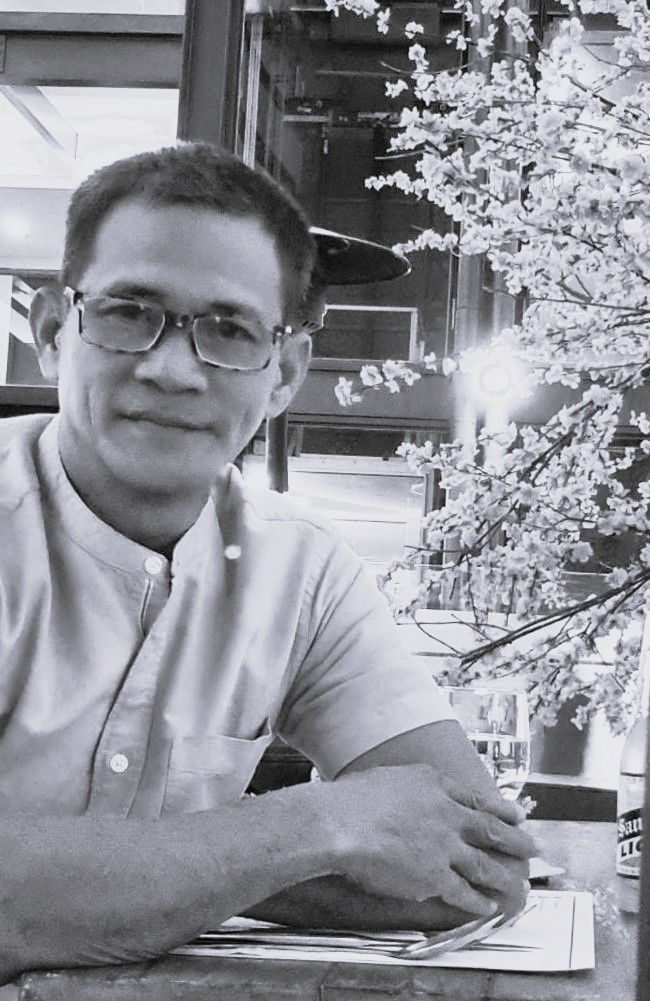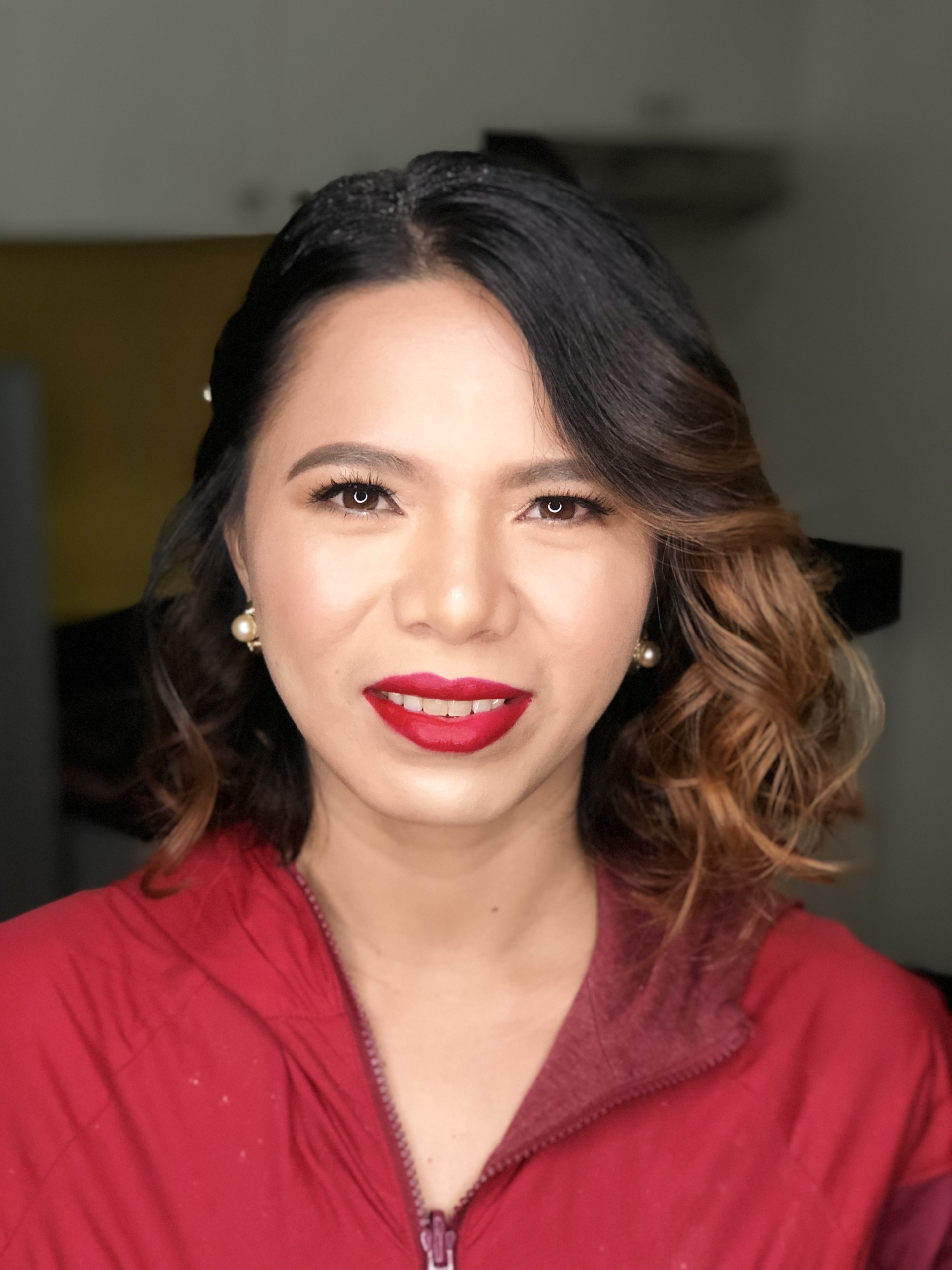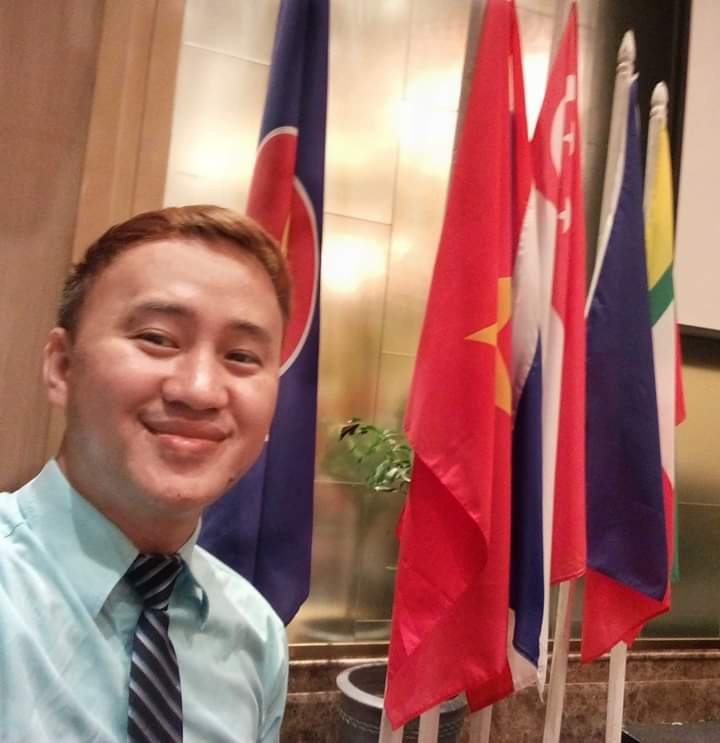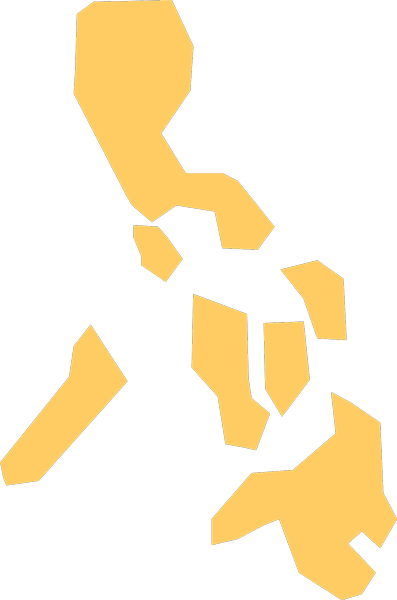
Philippines
Grant distribution
Latest Voices
Open Calls for Proposals
 29 Empowerment grants
29 Empowerment grants  13 Influencing grants
13 Influencing grants  19 Innovate and learn grants
19 Innovate and learn grants  8 Sudden opportunity grants
8 Sudden opportunity grants -
No Open Calls at the moment in this country. Come back later!
-
The Philippines is one of the four Southeast Asian countries where Voice is active.
We live in a rapidly changing world – some changes may be for the better – others not so much. In order to continue to ground Voice in local lived realities, a country context analysis is organised every other year, engaging many stakeholders, grantees and rightsholders. The analysis is used to frame Calls for Proposals, to support the applications of grant-seekers and to advance the overall learnings .Below follows a summary of the exercise conducted in 2022, capturing the many views and perspectives of Filipinos.
The summary is structured by presenting the big picture and slowly but surely to zoom in on the voices and aspirations of the rightsholders and to zoom out again by sharing the way forward for Voice. This page can also be downloaded at the bottom of the page.
A full report and previous versions can be availed to you upon request. Please contact Philippines@voice.global
Zooming out
The big picture
-
The Human Development Index is an index that combines data on life expectancy, education, and per capita income to rank countries. The Philippines climbed 10 places in the HDI ranking since 2016. Unfortunately, the improvement is not felt by many rightsholders. Possibly, some other countries may have been experiencing worse, pushing the Philippines 10 places higher in the index.
-
The IHDI measures the human development cost of inequality, or the overall loss to human development due to inequality. The closer to 1 the more equal a society is. The IHDI can inform policies towards inequality reduction. Inequality has slightly reduced since 2016 but still disproportionately felt by women, elderly (especially during COVID-19) and indigenous people after the anti-terrorism law was passed. Those who are in geographically isolated and disadvantaged areas and urban poor areas also experience this more in terms of all Voice impact themes. In addition to this, stateless people and people in street situation experience worse.
-
The GII is an inequality index, measuring the human development costs of gender inequality economically, health- and education-wise. The closer to 0 the better. Despite having almost the same numbers between 2016 and 2020, gender inequality has observably worsened. This is as shared by the rightsholders and as can be surmised from various news, incidents, and situations involving women.
-
According to the independent Civicus Monitor which started in 2016, civic space continues to be obstructed in the Philippines. In June 2020, the Philippines has been placed on the Civicus Monitor Watchlist as a country with serious and rapid decline in respect for civic space. This is especially true for indigenous people.
Behind the numbers
The Philippines has been classified as “repressed” in terms of its civic space status. The worsening condition of civic space in the country has been attributed to the shutdown of media giant ABS-CBN, prosecution of the administration’s critics, and passage of the national laws and policy reforms that brought a chilling effect on human rights advocacy in the country.
Adding to these developments are economic pressures. Key underlying factors that negatively affect the country’s economy include oil price hikes, current debt-to-GDP ratio, slow trend in the reduction of poverty, and weakening of the national currency. Some of these economic challenges are a fall out of the COVID-19 pandemic. On the Human Development front, while there has been an increase of 0.61 percent per year, the Philippines remains far behind its neighbouring countries, and is also at a slightly lower than the East Asia and Pacific averages.
Political shifts
The complexity brought by the COVID-19 pandemic was compounded by the outcome of the recently concluded National Elections. On a positive note, outstanding Local Government officials have made bold initiatives to keep their communities afloat and assured the public with good and transparent governance despite the limited resources. However, the overarching gaps in the political sphere include, but are not limited to, bureaucracy and a conflicting stance, as well as misinformation and disinformation brought by fake news spreaders, red tagging, and extrajudicial killings.
The cases of human rights violations caused alarm not only in the local sphere but also in the international domain as members of the US Congress in September 2020 and June 2021 introduced and reintroduced the Philippines Human Rights Act. These instances send a strong signal to watchdogs, opposition, and even ordinary citizens to think twice about scrutinising those in power. Nonetheless, rightsholders and grantee partners, during the validation process, have acknowledged that both the local and national governments are considered as actual and needed allies in materialising their advocacy demands – from the grassroots level up to the national level.
Economic shifts
Two years after the onset of the COVID-19 pandemic, the country is slowly recuperating from its economic losses. One evident manifestation of this is the significant decrease in the unemployment rate as compared to the 2020 data. However, women were noted to have the same position in terms of legal and economic gender equality in areas such as parenthood, marriage, and assets as in previous years. While People with Disabilities (PWDs) are safeguarded with inclusive policies and programmes on employment opportunities, questions remain about the coverage, accessibility, and implementation of such policies. In the context of impediments, the Elderly group is confronted with the challenge of technology as many industries migrated into the online paradigm. It is also important to note that while there is a decrease in unemployment, there has been an increase in out-of-school youth.
Social shifts
A prevailing manifestation of the “repressed” civic space status of the country is predominance of a “cancel culture,” a scheme of showing blunt disapproval. This creates an obstruction in safeguarding safe spaces where concerns and differences can be expressed. The emergence of this type of behaviour can be associated with the shift from offline to online platforms where there is a rise of digital authoritarians.
The internet has also brought a change in the way truthful information can be distinguished from “fake news”. Several rightsholders and grantee partners raised their apprehensions on being red-tagged because digital media has become all-encompassing and there is a lack of accountability among social media companies. In a more specific case, women are still victims of the culture of misogyny, machismo, and sexist jokes. The Lesbian, Gay, Bisexual, Transgender and Intersex (LGBTI) group, while generally strengthening their movement, continue to experience wide-spread discrimination, threats, and harassments from individuals in power and authority.
These manifestations of the growing stigma and exclusion are associated with the lack of inclusive laws and policies that are properly implemented, and the need to further mainstream the inclusion and intersectional perspectives.
(In)Visible power shifts
The presence and enactment of several policies created ease in the lives of the rightsholders to some extent. The country’s implementation of the whole-of-government, whole-of-nation, and whole-of-society approaches yielded all-inclusive plans for employment, collaboration, and concerted efforts. At the same time rightsholders and grantee partners see the necessity for their organisations to further influence the civil society through advocacy, lobbying, negotiations, media engagement, research, and development, to name a few.
For the LGBTI group, issuing statements and winning the approval of the masses on their statements are significant to make their stance known.
Women and women’s groups, on the other hand, continue their advocacy in repairing social breakdowns, rebuilding trust, and reaching the most vulnerable. However, rightsholders believe that having a more grounded Gender Advocacy Development framework and strategy, not only at the national level but also at the grassroots, will develop a more solid foundation among the groups.
The Indigenous Peoples and Ethnic Minority groups, likewise, saw that their lobbying efforts have been instrumental in generating attention, specifically on the issue of education. However, their advocacy work especially on land rights is still a challenge and continues to entail safety and security risks.
Similarly, People with Disabilities and the Elderly group are becoming more vocal and visible in society as they venture into more engagements with stakeholders and partners. These groups call for a better execution of policies governing their needs.
The youth, as compared to the other groups, have shown great development in showcasing their role in the community. This has been distinct during the national elections where more than 69 million voters belonged to this rightsholder group. Youth groups used the power of social media to make their stand on political and economic issues.
Covid-19 related shifts
Despite the eased restrictions and high rate of vaccination in the country, the traces and impacts of the COVID-19 pandemic have remained negatively affecting the human, health, and economic situation of rightsholders. For one, the uncertainty associated with the pandemic has caused mental and emotional turmoil among the people. Likewise, the challenge in mobility brought more difficulty among the producers, farmers, and fisherfolks.
While resilience has been the stronghold of Filipinos, different rightsholders experienced violence, exploitation, and abuse during the pandemic. A particular instance commonly mentioned during the validation is the presence of gatekeepers who are also the perpetrators especially among child victims, men and women.
Limitations in access to computers, internet, and other technological platforms caused barriers in terms of reach among the Indigenous Peoples and Ethnic Minority group and the Elderly. The youth, on the other hand, found ways to be more productive during the pandemic like setting up businesses, community pantries, and other means to display their advocacies.
Zooming in
Voices behind the picture
Deep-seated stereotypes, discrimination, and inequality in all material aspects of life remain entrenched culturally and remain the main bottleneck to progress and achievement of a more inclusive society for all. An overarching risk identified by the respondents is the immense impact of climate change and the limited capacity to be adaptive. Consequences include annual losses in GDP, changes in rainfall patterns and distribution, droughts, threats to biodiversity and food security, sea level rise, public health risks, and endangerment of rightsholder groups. On a micro level and in the case of the rightsholder groups and grantee partners, overarching risks include lack of management capacity and experience, high attrition rates in civil society organisations, internal conflicts, and challenges in acquiring funds.
Comprising 12.2 percent of the country’s total population, the Elderly community’s concern primarily lies on the health and economic aspects, especially in the time of the pandemic. While infection rates are low, mortality rates are high. This can also relate to the high poverty right among the community. The Commission on Human Rights (CHR) also stated that elder abuse has become an “invisible issue” in the country due to the inability of victims to report their cases and limited research involved. At the same time, Youth face risks that are difficult to penetrate – the emergence of mis and disinformation due to the damaging effects of fake news around the social media sphere. Amidst this, indigenous youth continuously push for greater support in technical assistance to counter under and unemployment.
Indigenous Peoples and Ethnic Minorities face security risks associated with their ancestral lands, culture, and their way of life. The main challenges include development aggression and institutional rivalries. For example, land titling of ancestral domains is the task of the National Commission on Indigenous Peoples, but due to underlying powerplay, the commission is overpowered by the higher central government.
Discrimination is not a novel concept among the LGBTI group despite the presence of anti-discrimination ordinances. Case in point, “hate” violence/crime, “corrective rape,” and bullying are still rampant. For the past year, cases of killings have also been reported. Aside from this, same-sex marriage is still prohibited in the country causing gaps in legal recognition among children. Other subgroups of sexual and gender minorities encounter barriers in socio-economic and political participation.
For People with Disabilities, lack of access to employment, social roles, implementation and monitoring of legislations, inaccessibility to services and programmes, are common. Among the subgroups that are more vulnerable are women with disabilities who have lesser access to health records and care services; Muslim people with disabilities in Mindanao who are confronted with discrimination in employment, education, and social services; and youth with disabilities such as those with developmental delays. The lack of disability-specific services and a harmonised disability movement are also a part of their main challenge.
Women are considered to have greater leverage as they are recognised in various national and international fora. However, despite this recognition, women are the hardest hit group in terms of labour markets. A World Bank report revealed that women who work are mostly concentrated in low skill positions (due to economic necessity) or high skill occupations (because of high rates of education).
Their aspirations
The Elderly’s aspiration remains to be grounded on the idea of sustainability as they hope for the passage of the Universal Social Pension advocacy. The pronouncement of this will ensure financial stability among the community. Apart from this, the group sees the need for a better government that is more responsive during the COVID-19 recovery. At the same time, Youth continuously desire to be part of civic engagement as they venture into becoming more visible in the political and economic spheres. The former was evidently manifested during the national election. The latter was embedded in the aspirations of youths to extend financial support to their families. On the education aspect, youths are hopeful for the resumption of in-person learning opportunities as this has greatly been hampered during the pandemic.
Indigenous Peoples and Ethnic Minorities seek to have full and unequivocal implementation and monitoring of the Indigenous Peoples Rights Act where they will find restoration over their rights on ancestral lands and domains, self-governance, and empowerment. Complementing these will be their recognition of cultural integrity, decision-making, and equal opportunities on education, training, and employment. Through this, threats, trumped-up chargers, red-tagging, and extrajudicial killings can be halted.
Anchored on the principles of safe space, intersectionality, gender and sexual liberation, and human rights, the LGBTI community embraces the concept of full acceptance and acknowledgement by the society. As they venture into the social, political, and cultural spheres, the group dreams to have more defined policies and guiding frameworks to align their advocacies. It is also their felt need to continue bridging gaps among the various rural and urban LGBTI communities.
Accessibility to increase participation has been the primary need of People with Disabilities. This can be attained by partnering with different organisations and standardising education, employment, livelihood, and socio-political involvement. Policies and awareness campaigns on disability-specific needs and response will also be a huge help in creating more inclusive spaces.
While women can voice-out their opinions, their key aspirations lie in promoting the Safe Space Act and continuous financial support for their advocacy. Women continuously aspire to have freedom of movement and less constraints on reforms that hamper equality of women in law.
Overarching among the rightsholders groups is their desire to have a quality and equal life where their needs are provided for, and their challenges acknowledged and addressed. The key to do this is to have intergenerational engagements, to include knowledge and technology transfer, concrete political participation, inclusivity and accessibility to various platforms and advocacy, to name a few.
Zooming out
Fostering change
The compounding risks, opportunities, and aspirations of the rightsholders and grantee partners, makes it evident that the common underlying factor among them is the necessity to continuously work for the protection of human dignity and human rights. To attain this in a more inclusive manner, the following ideas can be undertaken:
- Organise rightsholder groups and key populations from the grassroots up to the national level. To make this tangible, it is deemed essential to accredit local development bodies and establish a comprehensive integration of human rights lenses in the various advocacies of the different groups.
- Positively fight online trolls to counter mis and disinformation. Complementing the battle against social media news is the need to promote, recognise, and even incentivise positive media influencers.
- While women are regarded as vulnerable and marginalised, future grants can also delve on subgroups such as men and boys, recovering drug users, out-of-school youths, people with HIV, solo parents, distressed individuals who in one way or another have experienced discrimination and violence.
- Above all, recognise the uniqueness among the groups while at the same time converging their aspirations holistically to create a common and collective cause.
While Voice has helped in supporting community-based organisations (some through more established organisations) over the last five years, there is a need to continue holding the strings that connect the different communities and advocacies. How to keep the string lifted and connected is an issue that needs to be further strategized. To be able to continue responding to such trends and needs, Voice needs to be more visible to strategic partners as well as other allies and relevant stakeholders while ensuring that the visibility is merely in support of rightsholder groups who are taking the centre stage.
-
-
Grants

-
Grantee
![Mitigating the Minoritization of non-Moro Indigenous Peoples in the Bangsamoro by Harnessing an Enabling Policy Environment for Indigenous Peoples’ Rights]()
Mitigating the Minoritization of non-Moro Indigenous Peoples in the Bangsamoro by Harnessing an Enabling Policy Environment for Indigenous Peoples’ Rights
Legal Rights and Natural Resources Center, Inc. (LRC) -
Grantee
![Intensifying the Gains, Advancing IP interest; Taking Back What is Ours]()
Intensifying the Gains, Advancing IP interest; Taking Back What is Ours
PROCESS Foundation Panay, Inc. -
Grantee
![Boost, Amplify, Nurture, & Deepen (BAND) Elderly and Youth farmers skills for a stronger and rights-holder driven organization and empowered leaders]()
-
Grantee
![#LGBTILivesMatter: Accelerating Grassroots Tri-People LGBTI Movement Towards Rights-claiming and Empowerment through #Artstory and #Artvocacy]()
#LGBTILivesMatter: Accelerating Grassroots Tri-People LGBTI Movement Towards Rights-claiming and Empowerment through #Artstory and #Artvocacy
Alyansa ng Kabataang Mindanao Para sa Kapayapaan (AKMK), fiscally hosted by Tri-people Youth Collective of Mindanao for Peace Incorporated (TRIPOD) -
Grantee
![IMGLAD to Advocate Pride in Mindanao]()
IMGLAD to Advocate Pride in Mindanao
Initiatives and Movement for Gender Liberation Against Discrimination (IM GLAD), fiscally hosted by BALAY ALTERNATIVE LEGAL ADVOCATES FOR DEVELOPMENT (BALAOD) In Mindanaw, Inc. -
Grantee
![Building a Web of Safety and Care for Women Human Rights Defenders]()
Building a Web of Safety and Care for Women Human Rights Defenders
Katinnulong Daguiti Umili iti Amianan, Inc. (KADUAMI) - Call for Proposal
Voice(s) Connected & Amplified in Philippines: V-20154-PH-IL
closing date: 24 Feb 2023Closed -
Grantee
![Surublien Kat Kagaynan (Legacy to a Better Future)]()
Surublien Kat Kagaynan (Legacy to a Better Future)
Nagkakaisang Mga Tribu ng Palawan, Inc. (NATRIPAL) -
Grantee
![Accessing resources through cooperatives]()
Accessing resources through cooperatives
Rural Poor Institute for Land and Human Rights Services (RIGHTS) Inc. -
Grantee
![Empowering Refugee Women and Youth Towards Self-reliance and Socio-economic Integration]()
Empowering Refugee Women and Youth Towards Self-reliance and Socio-economic Integration
Philippine Arab Cooperation Council Inc. (PACCI), fiscally hosted by Community and Family Services International (CFSI) -
Grantee
![Empowering Marawi Seige Women Survivors Against Gender-based Violence]()
Empowering Marawi Seige Women Survivors Against Gender-based Violence
Mindanao Tri-people Women Resource Center (MTWRC) -
Grantee
![Ayuda Komunidad: A Sustained LGBTI+ Community Empowerment Project]()
Ayuda Komunidad: A Sustained LGBTI+ Community Empowerment Project
GAYON Albay LGBT Organization, Inc -
Grantee
![Passing the torch: Land Rights Now for Indigenous Youth]()
Passing the torch: Land Rights Now for Indigenous Youth
Asia Young Indigenous Peoples’ Network (AYIPN), fiscally hosted by International Indigenous Peoples Movement for Self Determination and Liberation (IPMSDL) -
Grantee
![Sibol: Economic Empowerment for Young & Women Agriculturists]()
Sibol: Economic Empowerment for Young & Women Agriculturists
Center for Agrarian Reform, Empowerment & Transformation, Inc. (CARET) -
Grantee
![Disability in Digital Economy]()
Disability in Digital Economy
Adaptive Technology for Rehabilitation, Integration and Empowerment of the visually Impaired, Inc. (ATRIEV) -
Grantee
![EQUIP-YP Economic Equality Initiatives for Productivity of Marginalised Young People]()
EQUIP-YP Economic Equality Initiatives for Productivity of Marginalised Young People
Bidlisiw Foundation, Inc. -
Grantee
![Project GROW]()
Project GROW
Initiative for Dialogue and Empower Through Alternative Legal Services (IDEALS) Inc. -
Grantee
![Economic Empowerment through Employment]()
Economic Empowerment through Employment
Labuin Association of Persons with Disabilities, Inc. (LAPDI) -
Grantee
![Strengthening Senior and Youth Farmers Organization to Access Resources]()
Strengthening Senior and Youth Farmers Organization to Access Resources
Task Force Mapalad, Inc (TFM) -
Grantee
![Strenthen Capacity of Bagnsamoro Young Women on Policy Makingin the BARMM]()
Strenthen Capacity of Bagnsamoro Young Women on Policy Makingin the BARMM
Kaagapay Overseas Filipino Workers Resource and Service Center -
Grantee
![Strengthening Capacities of Alliance of Bangsa Sangil Federation (ABSF)]()
Strengthening Capacities of Alliance of Bangsa Sangil Federation (ABSF)
Alliance of Tri-people for the Advancement of Human Rights (ALTAHR) -
Grantee
![WDARE – Mangahas Project]()
WDARE – Mangahas Project
Women with Disabilities taking Action Our Reproductive and Human Rights (WDARE), fiscally hosted by UP Center For Women's Studies Foundation, INC. (UPCWSFI) -
Grantee
![Timek ti Umili (Voice of the People): Advancing peoples’ welfare through social media and arts]()
Timek ti Umili (Voice of the People): Advancing peoples’ welfare through social media and arts
Cordilleran Youth Center (CYC) Inc -
Grantee
![Building Rainbow Communities: Organising LGBTQI Filipinos in Rural and Urban Poor]()
-
Grantee
![FACT: Feminist Approaches to Counter-Trafficking]()
FACT: Feminist Approaches to Counter-Trafficking
International Womens Rights Action Watch Asia Pacific (IWRAW Asia Pacific) -
Grantee
![Forging Intersectional Feminist Futures]()
Forging Intersectional Feminist Futures
International Women's RIghts Action Watch Asia-Pacific -
Grantee
![Inspire]()
Inspire
Indonesian Act for Justice (AKSI), International Drug Policy Consortium (IDPC), and BABSEACLE Foundation (fiscal host) - Call for Proposal
Include and Ideate! : Philippines Innovate & Learn Grants V-21172-PH IL
closing date: 30 Jun 2021Closed - Call for Proposal
I’M-POWER!: Philippines Empowerment Grants V-21171-PH-EM
closing date: 01 Jul 2021Closed - Call for Proposal
Empowerment Accelerated!: Philippines Empowerment Grants V-21173-PH-EM
closing date: 15 Jun 2021Closed - Call for Proposal
Coming Together, Moving Forever!: Global Influencing Grants V-20152-XG-IF
closing date: 15 Jan 2021Closed - Call for Proposal
It’s Still Our Turn To Talk! Global Influencing Grant V-20151-XG-IF
closing date: 15 Dec 2020Closed - Call for Proposal
Voice Your Move!: Philippines Influencing Grant V-20150-PH-IF
closing date: 15 Jan 2021Closed - Call for Proposal
Voice(s) Connected & Amplified in the Philippines: Linking & Learning Facilitation V-20154-PH-IL
closing date: 15 Jan 2021Closed
 Grantee
Grantee![Mitigating the Minoritization of non-Moro Indigenous Peoples in the Bangsamoro by Harnessing an Enabling Policy Environment for Indigenous Peoples’ Rights]()
Mitigating the Minoritization of non-Moro Indigenous Peoples in the Bangsamoro by Harnessing an Enabling Policy Environment for Indigenous Peoples’ Rights
Legal Rights and Natural Resources Center, Inc. (LRC)Grantee![Intensifying the Gains, Advancing IP interest; Taking Back What is Ours]()
Intensifying the Gains, Advancing IP interest; Taking Back What is Ours
PROCESS Foundation Panay, Inc.Grantee![Boost, Amplify, Nurture, & Deepen (BAND) Elderly and Youth farmers skills for a stronger and rights-holder driven organization and empowered leaders]() Grantee
Grantee![#LGBTILivesMatter: Accelerating Grassroots Tri-People LGBTI Movement Towards Rights-claiming and Empowerment through #Artstory and #Artvocacy]()
#LGBTILivesMatter: Accelerating Grassroots Tri-People LGBTI Movement Towards Rights-claiming and Empowerment through #Artstory and #Artvocacy
Alyansa ng Kabataang Mindanao Para sa Kapayapaan (AKMK), fiscally hosted by Tri-people Youth Collective of Mindanao for Peace Incorporated (TRIPOD)Grantee![IMGLAD to Advocate Pride in Mindanao]()
IMGLAD to Advocate Pride in Mindanao
Initiatives and Movement for Gender Liberation Against Discrimination (IM GLAD), fiscally hosted by BALAY ALTERNATIVE LEGAL ADVOCATES FOR DEVELOPMENT (BALAOD) In Mindanaw, Inc.Grantee![Building a Web of Safety and Care for Women Human Rights Defenders]()
Building a Web of Safety and Care for Women Human Rights Defenders
Katinnulong Daguiti Umili iti Amianan, Inc. (KADUAMI)Call for ProposalVoice(s) Connected & Amplified in Philippines: V-20154-PH-IL
closing date: 24 Feb 2023ClosedGrantee![Surublien Kat Kagaynan (Legacy to a Better Future)]()
Surublien Kat Kagaynan (Legacy to a Better Future)
Nagkakaisang Mga Tribu ng Palawan, Inc. (NATRIPAL)Grantee![Accessing resources through cooperatives]()
Accessing resources through cooperatives
Rural Poor Institute for Land and Human Rights Services (RIGHTS) Inc.Grantee![Empowering Refugee Women and Youth Towards Self-reliance and Socio-economic Integration]()
Empowering Refugee Women and Youth Towards Self-reliance and Socio-economic Integration
Philippine Arab Cooperation Council Inc. (PACCI), fiscally hosted by Community and Family Services International (CFSI)Grantee![Empowering Marawi Seige Women Survivors Against Gender-based Violence]()
Empowering Marawi Seige Women Survivors Against Gender-based Violence
Mindanao Tri-people Women Resource Center (MTWRC)Grantee![Ayuda Komunidad: A Sustained LGBTI+ Community Empowerment Project]()
Ayuda Komunidad: A Sustained LGBTI+ Community Empowerment Project
GAYON Albay LGBT Organization, IncGrantee![Passing the torch: Land Rights Now for Indigenous Youth]()
Passing the torch: Land Rights Now for Indigenous Youth
Asia Young Indigenous Peoples’ Network (AYIPN), fiscally hosted by International Indigenous Peoples Movement for Self Determination and Liberation (IPMSDL)Grantee![Sibol: Economic Empowerment for Young & Women Agriculturists]()
Sibol: Economic Empowerment for Young & Women Agriculturists
Center for Agrarian Reform, Empowerment & Transformation, Inc. (CARET)Grantee![Disability in Digital Economy]()
Disability in Digital Economy
Adaptive Technology for Rehabilitation, Integration and Empowerment of the visually Impaired, Inc. (ATRIEV)Grantee![EQUIP-YP Economic Equality Initiatives for Productivity of Marginalised Young People]()
EQUIP-YP Economic Equality Initiatives for Productivity of Marginalised Young People
Bidlisiw Foundation, Inc.Grantee![Project GROW]()
Project GROW
Initiative for Dialogue and Empower Through Alternative Legal Services (IDEALS) Inc.Grantee![Economic Empowerment through Employment]()
Economic Empowerment through Employment
Labuin Association of Persons with Disabilities, Inc. (LAPDI)Grantee![Strengthening Senior and Youth Farmers Organization to Access Resources]()
Strengthening Senior and Youth Farmers Organization to Access Resources
Task Force Mapalad, Inc (TFM)Grantee![Strenthen Capacity of Bagnsamoro Young Women on Policy Makingin the BARMM]()
Strenthen Capacity of Bagnsamoro Young Women on Policy Makingin the BARMM
Kaagapay Overseas Filipino Workers Resource and Service CenterGrantee![Strengthening Capacities of Alliance of Bangsa Sangil Federation (ABSF)]()
Strengthening Capacities of Alliance of Bangsa Sangil Federation (ABSF)
Alliance of Tri-people for the Advancement of Human Rights (ALTAHR)Grantee![WDARE – Mangahas Project]()
WDARE – Mangahas Project
Women with Disabilities taking Action Our Reproductive and Human Rights (WDARE), fiscally hosted by UP Center For Women's Studies Foundation, INC. (UPCWSFI)Grantee![Timek ti Umili (Voice of the People): Advancing peoples’ welfare through social media and arts]()
Timek ti Umili (Voice of the People): Advancing peoples’ welfare through social media and arts
Cordilleran Youth Center (CYC) IncGrantee![Building Rainbow Communities: Organising LGBTQI Filipinos in Rural and Urban Poor]() Grantee
Grantee![FACT: Feminist Approaches to Counter-Trafficking]()
FACT: Feminist Approaches to Counter-Trafficking
International Womens Rights Action Watch Asia Pacific (IWRAW Asia Pacific)Grantee![Forging Intersectional Feminist Futures]()
Forging Intersectional Feminist Futures
International Women's RIghts Action Watch Asia-PacificGrantee![Inspire]()
Inspire
Indonesian Act for Justice (AKSI), International Drug Policy Consortium (IDPC), and BABSEACLE Foundation (fiscal host)Call for ProposalInclude and Ideate! : Philippines Innovate & Learn Grants V-21172-PH IL
closing date: 30 Jun 2021ClosedCall for ProposalI’M-POWER!: Philippines Empowerment Grants V-21171-PH-EM
closing date: 01 Jul 2021ClosedCall for ProposalEmpowerment Accelerated!: Philippines Empowerment Grants V-21173-PH-EM
closing date: 15 Jun 2021ClosedCall for ProposalComing Together, Moving Forever!: Global Influencing Grants V-20152-XG-IF
closing date: 15 Jan 2021ClosedCall for ProposalIt’s Still Our Turn To Talk! Global Influencing Grant V-20151-XG-IF
closing date: 15 Dec 2020ClosedCall for ProposalVoice Your Move!: Philippines Influencing Grant V-20150-PH-IF
closing date: 15 Jan 2021ClosedCall for ProposalVoice(s) Connected & Amplified in the Philippines: Linking & Learning Facilitation V-20154-PH-IL
closing date: 15 Jan 2021Closed -
-
Link + Learn



